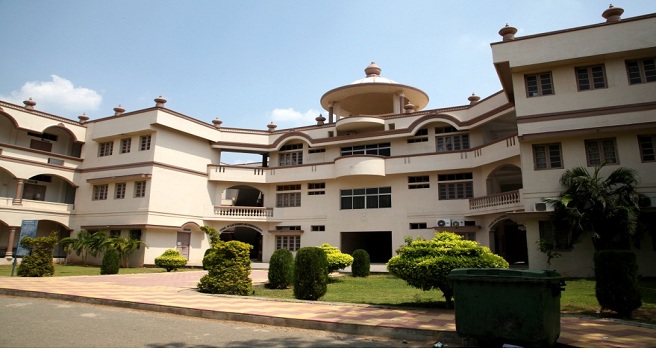COURSE DETAILS
Course Name :Mathematics
The Department of Mathematics was set up in 1995 and is one of the pioneering departments of the institution that offers assistance to many Information Technology and Engineering courses of the institute. It is committed to the cost of quality education in mathematics that forms the basis for all the other fields and IT, a field growing in leaps and bounds. International Collaboration in the exchange of research activities is a regular practice in the department. Several eminent mathematicians visit the Department from time to time and collaborate with the faculty members of the Department. Research monograph brought out by well-known international publishers from part of the research output of the members of the faculty.
The department is active in research in most areas of pure and applied mathematics, like Graph theory, Computational & Theoretical Fluid Dynamics. Besides the central Computing facilities of the Institute, the department has its own state of the art Computational Lab and a Mathematical Modeling Lab equipped with MATHEMATICA 11.3 package to cater the needs of B.Tech, M. Tech. and Ph. D students. The students gain knowledge of various new areas of research using the free Internet facilities made available in their labs. So for the department has produced 2 Ph.D and another 10 students are working for their doctorial degree.

Vision
- To develop this rural based engineering college into an institute of technical education with global standards.
Mission
- To build a world class undergraduate program with all required infrastructure that provides strong theoretical knowledge supplemented by the state of art skills.
Program Outcomes (PO's) - Engineering Graduates will be able to:
- Engineering knowledge: Apply the knowledge of mathematics, science, engineering fundamentals, and an engineering specialization to the solution of complex engineering problems.
- Problem analysis: Identify, formulate, review research literature, and analyze complex engineering problems reaching substantiated conclusions using first principles of mathematics, natural sciences, and engineering sciences.
- Design/development of solutions: Design solutions for complex engineering problems and design system components or processes that meet the specified needs with appropriate consideration for the public health and safety, and the cultural, societal, and environmental considerations.
- Conduct investigations of complex problems: Use research-based knowledge and research methods including design of experiments, analysis and interpretation of data, and synthesis of the information to provide valid conclusions.
- Modern tool usage: Create, select, and apply appropriate techniques, resources, and modern engineering and IT tools including prediction and modelling to complex engineering activities with an understanding of the limitations.
- The engineer and society: Apply reasoning informed by the contextual knowledge to assess societal, health, safety, legal and cultural issues and the consequent responsibilities relevant to the professional engineering practice.
- Environment and sustainability: Understand the impact of the professional engineering solutions in societal and environmental contexts, and demonstrate the knowledge of, and need for sustainable development.
- Ethics: Apply ethical principles and commit to professional ethics and responsibilities and norms of the engineering practice.
- Individual and team work: Function effectively as an individual, and as a member or leader in diverse teams, and in multidisciplinary settings.
- Communication: Communicate effectively on complex engineering activities with the engineering community and with society at large, such as, being able to comprehend and write effective reports and design documentation, make effective presentations, and give and receive clear instructions.
- Project management and finance: Demonstrate knowledge and understanding of the engineering and management principles and apply these to one’s own work, as a member and leader in a team, to manage projects and in multidisciplinary environments.
- Life-long learning: Recognize the need for, and have the preparation and ability to engage in independent and life-long learning in the broadest context of technological change.
